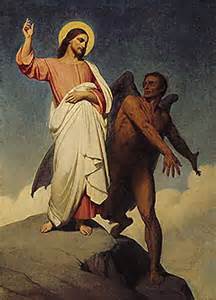The Market Value of a Soul
March 30, 2013 in Editorial

Typically, one’s immortal soul is considered to be of infinite value to its original owner, as possession of it is widely thought to allow access to some sort of eternal reward and/or avoidance of eternal damnation. But what if you are in a really tight spot, and don’t have any other assets to sell at that moment?
Maybe it’s time to consider entering the eternally hot market of soul trading.
Before signing any contract however, you should probably have a firm grasp of what exactly the commodity being traded is typically worth, so read on.
Unfortunately for the potential soul-seller, there seem to be rather few credible soul purchasers on the market. Certainly there are quite a few soul consumers, such as Yog-sothoth1, the Erlking2, Nyarlathotep3, etc. but according to most sources they often either merely seize the soul in question without negotiation or bargain in rather bad faith.

Yog-sothoth: not much of a negotiator when it comes to souls
The only entity that appears to regularly purchase souls is the Satan of the Abrahamic faiths and his agents, such as Mephistopheles.

The Prince of Lies: Most Honest and Reliable Soul Dealer in the Cosmos Since 5,500 BCE!
Given his position as the dominant soul purchaser in the market and the high fragmentation of soul sellers, Satan has a great deal of bargaining leverage.
On the bright side, at least for purposes of this analysis, Lucifer’s position means that his offers can be considered the standards of the market, allowing us to relatively easily determine the market value of a soul based upon Satan’s traits and prior transactions.
The first thing to consider is Satan’s motivations for purchasing souls, from which we might derive his level of demand. While his game is somewhat puzzling, it would seem that his primary objectives are political and/or personal, revolving around his adversarial relationship with the Abrahamic God. Given that this conflict is projected to persist until Armageddon, and that humans (and their souls) appear to be one of the major strategic focuses of this conflict, we can anticipate that his demand will persist for the foreseeable future.
As for Satan’s supply of capital to exchange in these transactions, this man of wealth and taste is frequently considered to have dominion over the entire Earth (primarily based on his being referred to as “ruler of this world” (John 12:31, NRSV)), and indeed in Matthew 4:8-9 Satan offers Jesus all the kingdoms of the Earth in exchange for Jesus worshipping him. From this we can derive that Satan’s asset base for soul transactions is not only huge, but will keep perfect pace with global GDP,4 and effectively render him immune from the time-value of money (as he’s already invested in everything.)

“It’s a great up-and-coming neighborhood.”
So, how much has the Prince of Darkness been historically willing to offer for a typical mortal soul? While there are many accounts of these transactions, most of them either are settled with wagers, which upsets calculating market value as it is difficult to reconstruct the probability calculations used by the participants, or they involve intangible components such as love, good fortune, fame, knowledge, political power, or sorcerous powers of ambiguous scale and versatility, which are difficult to quantify in terms of pure financial value. Fortunately, there is the case of 18th century New Hampshire General Jonathan Moulton.

Thinly veiled as “General Hampton” in Samuel Drake’s 1882 travelogue The Heart of the White Mountains, Jonathan Moulton sells his soul in exchange for having his boots filled with guineas every month. Naturally, Moulton soon found the largest pair of boots in the village so that he could maximize his income from the bargain, which Satan apparently considered acceptable as “the devil does not stand upon trifles.” However, when Moulton tried to push his luck further by cutting out the soles of the boots so that the devil would fill the boots endlessly, Satan apparently considered this a breach of contract and decided to sue in a trial by fire—as in, he burned down Moulton’s house.
On top of paying damages in terms of the damage to his house, Moulton also lost all of the guineas, which he had been stuffing into the rafters of his house, and still had to give up custody of his soul, based on the fact that supposedly when he was exhumed his coffin was found empty.
Extrapolating from a reference to a 1769 Boston Chronicle article, we can date the conflagration of Jonathan Moulton’s house to March 15th, 1769, which is useful useful information for determining the value of the transaction, which you can see here.

Volume of two largest boots available:
640cm3
Volume of one guinea:
1.131cm3
Number of guineas in two boots:
11,745
Wage of an English farmer (1769):
17.38 guineas per year
Converting economic values from this time period and earlier to that of today is a hotly debated matter by economic historians considering the lack benchmarks that persist across them, but if we scale the income of a 1769 English farmer to the average U.S. wage today, then the compensation for the soul would be worth approximately $29 million per month or $348.5 million per year, over two and a half times the total income of the highest paid CEO of 2012, who was paid $137.2 million for the entire year.
Alternatively, we could calculate Moulton’s income based on the modern value of the gold in the coins. Each guinea minted during that period contained 7.7 grams of gold (out of 8.4 grams in the coins total.) This works out to 90.7 kilograms of gold each month, which would be worth $5 million on today’s market.
So, assuming that souls are moderately fungible, and the devil has been giving his dues in keeping up with modern income expectations, the typical Faustian bargain can net a substantial short-term upside, albeit with a high rate of seller’s remorse.
-Centives would like to thank our guest writer Gregory Maus of strategic consulting firm Maus Publicity and Consulting for getting in touch and contributing this article.
1 While Yog-sothoth, as presented in Illuminatus!, seems to be open to some forms of negotiation to devour the souls of others, but the entity in question is rather fickle in its soul consumption, taking the souls of those who summon it if not properly restrained. Furthermore, because Yog-sothoth devours the souls of others, rather than that of the negotiator, the resulting moral hazard means that that which is given in exchange cannot be considered a fair market price. In any case, the account in Illuminatus! seems to be the only instance of an entity known as Yog-sothoth trafficking in souls, per se, and indeed it seems to differ in quite number of respects from the Yog-sothoth featured elsewhere in the Lovecraft mythos.
2 The closest that the Erlking seems to come to a soul purchase is in Goethe’s Der Erlkönig, in which he does originally promise the boy involved in the soul transaction the opportunity to join him in his halls for a variety of merriments, but this cannot be considered a good-faith offer as the Erlking A. never informs the boy of the price of the offer or really any terms thereof, and B. steals the boy’s soul when negotiations break down, demonstrating that negotiations involved unfair leverage and coercive elements (which is also suggested by the boy’s verbal expressions of fear throughout the poem.) While there other folkloric instances of individuals making unusual transactions with various fey (involving such bargaining chips as marriage, one’s children, or one’s memories), they never seem to involve the mortal’s own soul.
3 As the soul and messenger of the Outer Gods, Nyarlathotep is naturally involved with a variety of transactions with mortals, such as signing one’s name in Azathoth’s book in Dreams in the Witch House, but it is ambiguous as to whether these transactions involved the mortal bargainer’s soul and even if they do, the one transaction featured in the story is laced with coercive elements (chiefly repeated insanity-inducing harassment by Brown Jenkin and Keziah Mason) and suggestions that alleged book signer Walter Gilman may not have been in a sufficiently sound state of mind to properly consent to such an exchange (if indeed it did occur, which is ambiguous.) Nyarlathotep (and various other Lovecraftian entities) may also receive the souls of his various cultists throughout the cosmos, but this likely cannot be properly considered a good-faith bargain either, given Nyarlathotep’s inherent conflict of interest as perceived deity of said cultists (a role it could utilize to counsel his followers to offer their souls to it for less than fair market value.)
4 The conclusion that Satan’s assets to exchange for souls will keep pace with Earth’s GDP does rely on the implicit assumption that Satan does not commonly utilize substantial assets decoupled from and out of step with Earth’s economy for these transactions,
5 These calculations assume that any bulge in the boots from the weight of the guineas is roughly canceled out by the inefficient space utilization by the coins.
Enjoyed this? Check out our estimates of other soul trades, or have a think about how much the markup is on your pizza toppings. You can find this and other articles in our Editorials although for a selection of the best check out our Greatest Hits. And be sure to stay in touch:



tell me website where priest can buy our soul
can you people tell me any website where priest can sell our soul to the devil or method to sell your soul
what the fuck
Would love to be able to copy the picture of satan sitting on the throne. I would like to use it for my wall on Facebook . ameritah718@gmail.com
With regard to your first comment: Satan only runs into uncertainty if he does not know heaven’s admissions criteria. I find that a little hard to believe, as Satan has had the opportunity to observe and interact with God over a time period which spans at least several millennia, also Satan could easily have observed (and indeed plays a pivotal role) in many biblical events. So the idea that Satan does not know what God is looking for when he decides who goes to heaven is a little hard for me to swallow. He could easily look it up. I suppose there is some uncertainty with regard to repentance before the contract has been fulfilled. In Faust there was always the risk of an eleventh hour redemption, and if that’s the uncertainty to which you refer then I agree wholeheartedly. Satan, however, seems to bargain with this in mind and I think you and both agree on that.
With regard to your second comment: You can’t compare the Federal Reserve to Satan (much as many people would like to). Where the Fed has a dominant market position, Satan is the market. God doesn’t go around buying souls and the other soul consumers take them by force. Satan is the only entity that actually engages in soul transactions. Because of this, he can perfectly discriminate between sellers. If Satan knows that one person will sell his soul for $5 and another person will sell his soul for $1000, Satan is free to offer the first $5 and the second $1000. Does this make the “going rate” $502.50? Of course not.There is no market price for souls, only an individual price because Satan is the only one buying and because Satan never has to offer more for a soul than he is wiling to. Satan’s primary objective is getting the deal done, not the price as such he doesn’t have any real interest in offering a “going rate” for souls.
We both agree that Satan is willing to offer far more than he already does for souls. So let’s assume for a moment that Satan knows he would be willing to offer at MOST $1 million for any given soul (I’m also assuming for this exercise that Satan doesn’t see any difference between souls, ie all souls are equally valuable to him). Now Satan doesn’t have to offer $1 million. There’s no competition in the soul market. He can easily offer any amount below that, indeed he has every incentive to do so. Thus we’re left with a schedule of prices bounded by $0 and $1 million. Satan can offer any value in between and does. Unless we souls gather our market power together and start collectively bargaining our souls, Satan will never offer a going rate. He has no need to do so. He is indeed better off by not doing so because it allows him to offer prices that depend only on how much each individual values their soul (which we believe are far lower than what Satan is willing to pay) and not on how much the market values their souls. Remove Satan’s $1 million limit and you’re left with the same conclusions except that Satan will never refuse an offer on a soul. Remove the assumption that Satan views all souls as equally valuable and then you’re left with a situation that even better supports my claim that there is no going rate for souls, because in that case Satan can’t even set a general max price he would be willing to pay for a soul.
The transaction of souls is such a personal and singular act, that it does not seem possible to me that there could be any kind of “going rate” for them. The closest thing to a “going rate” I can think of are the daily temptations we face. Those seem to be the prices that Satan most often offers for your soul and the prices we most often seem to accept for them.
As you touch upon, Satan’s uncertainty in regards to whether a soul will go to heaven comes not from ignorance over God’s criteria, but from the soul possessor’s future actions, which may determine whether a soul will fit the criteria at the time of death.
As to your other points, they are difficult to argue with, so I am more or less inclined to agree that no “going rate” is actually possible, but it’s a fun mental exercise.
You can’t say that there is a “going rate” for souls. Either the beings in question seem to live off souls, thus making their demand perfectly inelastic or, in the case of Satan, he has the benefit of being able to (almost) perfectly discriminate in his pricing. In the first case, the “buyer” only has an incentive to bargain when he can’t take the soul by force (and if he can’t take the soul by force, then the “seller” has nothing to gain by the trade because giving his soul up typically means death). In the second case, that of Satan, Satan only increases his utility if the soul is exchanged willingly (as this is the only case in which the soul is denied to God and the human sent to hell). We can assume that Satan only has interest in souls that would otherwise go to heaven. So Satan is not interested in all souls, but only those that fit within his political objectives. Second, Satan seems mostly interested in getting a signature on the contract. He only meets his end of the bargain to prevent the signatory from repenting. Thus Satan cannot be said to be pricing souls but is rather waging a life and death struggle that revolves around the exchange of souls and cannot be believed to act rationally in his prices. I also strongly suspect that Satan would be willing to pay far more than he has been for souls.
Clayton. I largely agree with the majority of your comments, except in a few regards.
1. Satan may not be able to determine with certainty whether a particular soul will go to heaven (though he may be able to estimate probabilities) and may be willing to pay to reduce the uncertainty of acquisition, especially if, as you suspect (as do I) that Satan would willing pay far more than he has for souls thus far.
2. Even if Satan is not a rational purchaser, as you suggest, that does not exclude the possibility that his typical rates do not create a market price for the commodity in question. For comparison, the Federal Reserve buys government bonds for political motives without regard to its own profits and thus might be considered to act irrationally from a market standpoint, but its dominant position in the market sets the market price for such bonds.